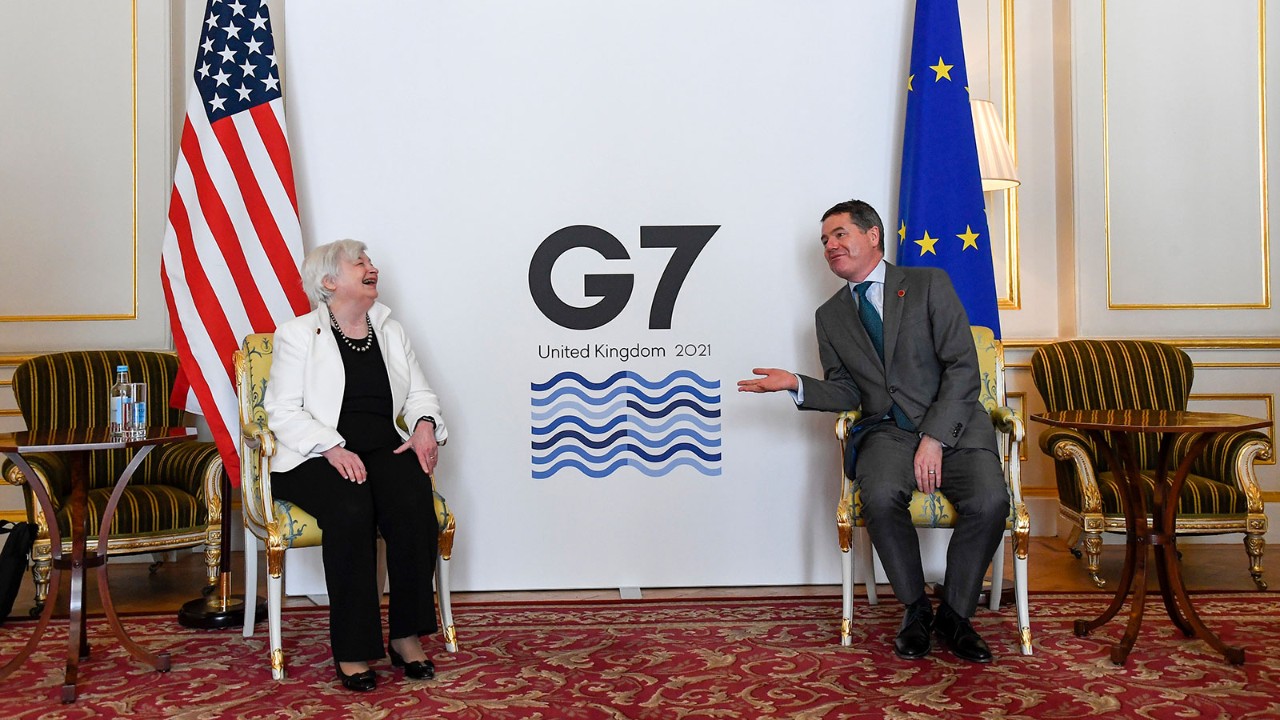
Speak to many with a stake in Ireland’s financial services sector or government and they will tell you that the country’s low corporate tax rate is only a fraction of what attracts foreign direct investment (FDI) into the economy. But they’ll also say that the rate is a ‘legitimate lever’ to compensate for the country’s size and resources.
They argue that a global minimum tax rate will damage the Irish treasury’s take, but downplay the current lower rate’s effect on FDI. They say Ireland has other aces up her sleeve, while simultaneously campaigning vigorously against such a rate hike. The contradictions are notable.
‘The big tech investment in Ireland is of considerable substance; it’s not brass plates’
But speak to others in policy research and they will tell you that the country’s 12.5% corporation tax rate is much lower in practice, and causes significant harm to both Ireland’s economy and to other countries, too – and all for the benefit of a few thousand jobs.
These commentators want Ireland’s large multinationals to pay more tax and they want it redistributed progressively across the Irish economy. They argue that jurisdictions like Ireland are leading a race to the bottom on corporate tax that ends up damaging the already vulnerable.
So what’s the truth? Would a rate hike spark a mass investment exodus? Would Ireland have to find new ways to keep investment coming in? Or would business stick around? Well, we’re about to find out.
Wave of deals
Global tax deals are like buses: you wait forever for one, and then three come at once. In the space of a year, the US, the Organisation for Economic Cooperation and Development (OECD) and the G7 have all closed in on some version of a minimum tax rate.
The US plan is essentially a levy on the global income of US companies - taking that tax from 10.5% to 21%. The G7 leaders agreed to a global minimum corporate tax rate of 15% (as well as a levy on highly profitable multinational companies). And on 1 July, the OECD/G20 Inclusive Framework on BEPS reached agreement, but not unanimous consensus, on key aspects of the two-pillar solution to address tax challenges from the digitalisation of the economy.
Pillar One proposes a reallocation of a proportion of tax to market jurisdictions, while Pillar Two seeks to apply a global minimum effective tax rate of 15%. This has been ratified by all but nine of the 130 Inclusive Framework members, with Ireland being one of those to hold back. It is likely that agreement on the OECD deal will supersede other proposals, including bespoke digital taxes in development by some nations.
The Minister for Finance, Paschal Donohoe, explained: 'I have consistently spoken of my desire for a comprehensive, sustainable and equitable agreement on the international tax rules at the OECD that meet the needs of all countries, large and small, developed and developing. I was not in a position to join the consensus on the agreement and specifically a global minimum effective tax rate of "at least 15%" today.
'I have expressed Ireland’s reservation, but remain committed to the process and aim to find an outcome that Ireland can yet support. Ireland will continue to play our part in reaching a comprehensive and, indeed, historic agreement.’
An EY survey suggests that Ireland may not have a great deal to worry about. According to EY’s figures, Ireland maintained its position among other EU members for FDI in 2020 and has the highest per capita rate of FDI in Europe.
Feargal de Freine, an assurance partner and head of FDI at EY Ireland, says: ‘Tax is only one element of a country’s proposition for investors. Availability and talent of the workforce is another, [along with] the regulatory environment, connectivity and the quality of the infrastructure. What often gets lost in the analysis is the range of what Ireland offers.’
It’s certainly true that Ireland has a young and well-educated population, and its membership of the EU makes it an attractive proposition for American investors wanting a stake in an English-speaking, common-law jurisdiction in Europe.
Proper investments
There are plenty who believe that raising the tax rate won’t cause the big multinational businesses to leave anyway. ‘The big tech investment in Ireland is of considerable substance,’ De Freine says. ‘It’s not brass plates.
'That substance was demonstrated by the resilience of the state’s tax take during the first year of the pandemic. There were no job losses in FDI-supported industries, and Ireland’s pharmaceutical and life sciences industries played a central role in the global response to the pandemic.’ De Freine believes that big tech companies will not easily abandon their investments in Ireland.
But if Ireland is as attractive as some say – even without an undeniably magnetic 12.5% corporate tax rate – then why is the government lobbying so hard against any rise? Donohoe believes that such a rate is fair and 'within the ambit of healthy competition'. And the outcome of the OECD’s rate hike agreement is now more critical since Brexit brings ‘disruption and uncertainty’.
Principle v practice
But, as De Freine points out, while there is an unprecedented level of agreement, many of the practicalities are still abstract. 'Regardless of the level of agreement, let’s not forget that these are still proposals at the moment,' he says.
Negotiation on the terms of the deal will continue until the autumn. Numerous further carve-outs will doubtless be agreed, and some nations – including the US – may struggle to push the changes through their respective legislatures.
There is also growing concern that a global minimum corporate tax rate will simply encourage countries to get creative. Switzerland is already drawing up incentives to keep certain industries interested in staying.
Complex bilateral and multilateral tax treaties with loopholes for certain types of research or development also pose a threat to any minimum rate. Bloomberg journalists Ivan Levingston and Siddharth Vikram Philip warn: ‘If new legislation doesn’t address the other perks tax havens offer big tech companies, they could maintain a lot of their advantages.’
The jury may be out on whether Ireland can retain or replace its current high levels of FDI, but the verdict is certainly in on whether agreement on some form of internationally applicable minimum rate is possible. Ireland can lobby and vote, but the consensus on and momentum towards a globally applicable minimum rate has never looked so strong.



